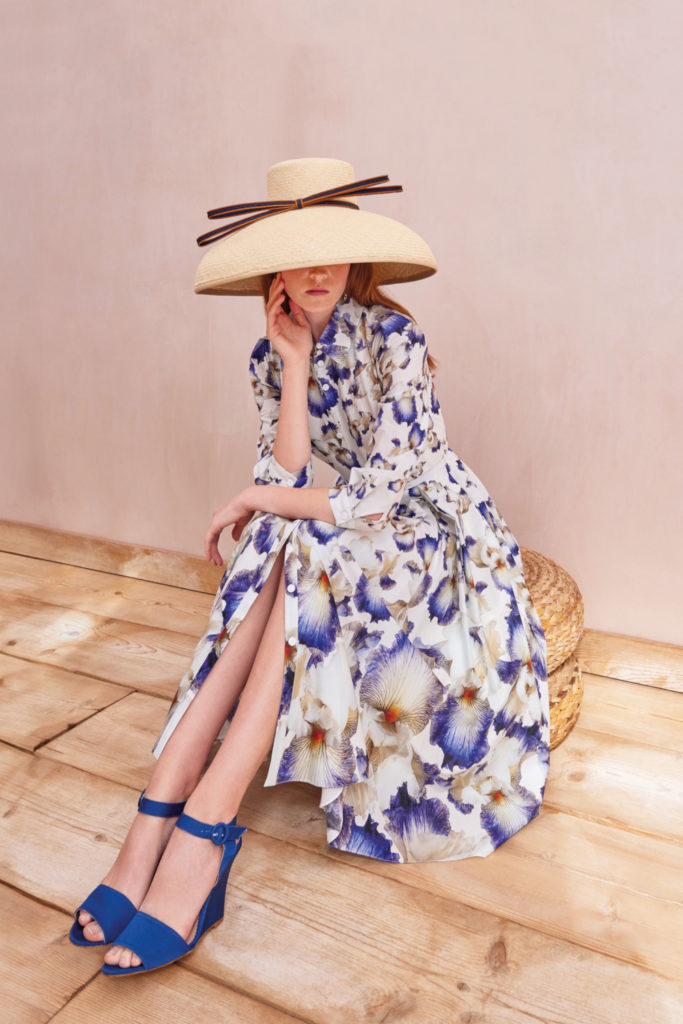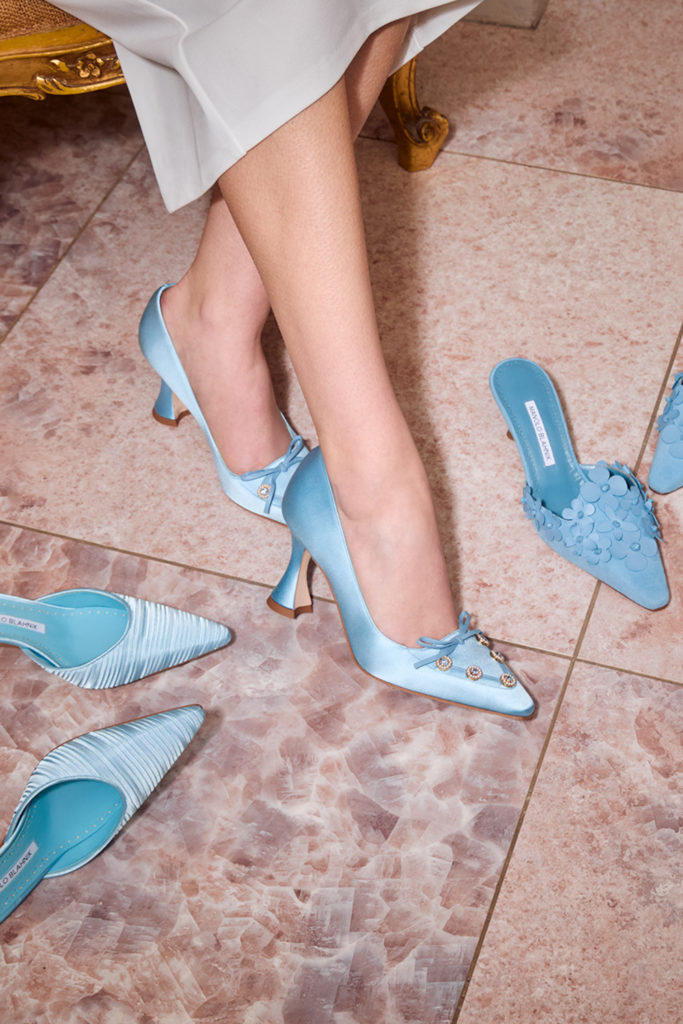Green Heroes: Geoff van Sonsbeeck, founder of Baukjen
By
4 years ago
'We say we are responsible, not sustainable, as to be truly sustainable, you must do nothing or simply restore the earth.'
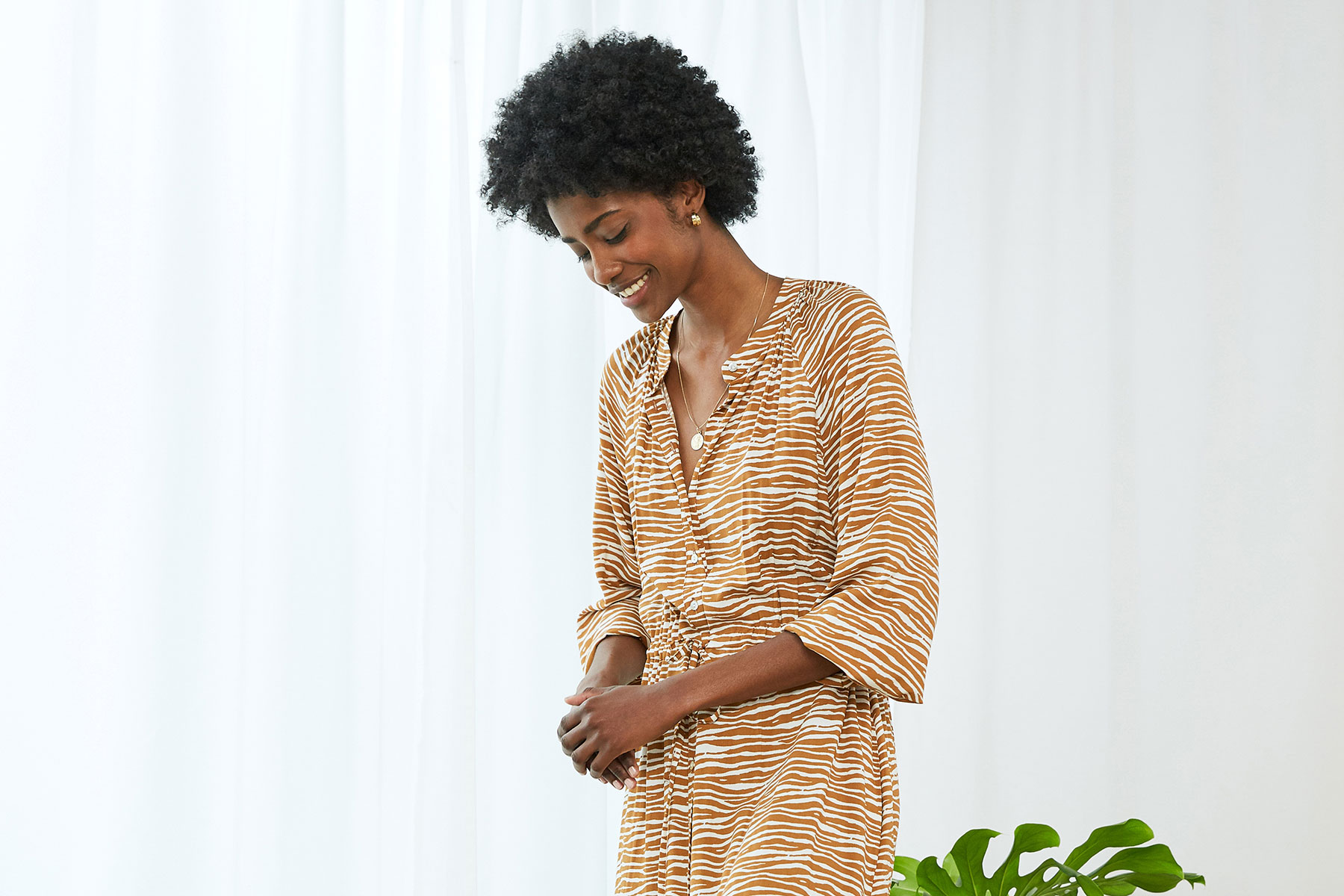
This fashion brand has the highest B Corp rating in the UK, and bangs the drum for being responsible in all aspects of their business
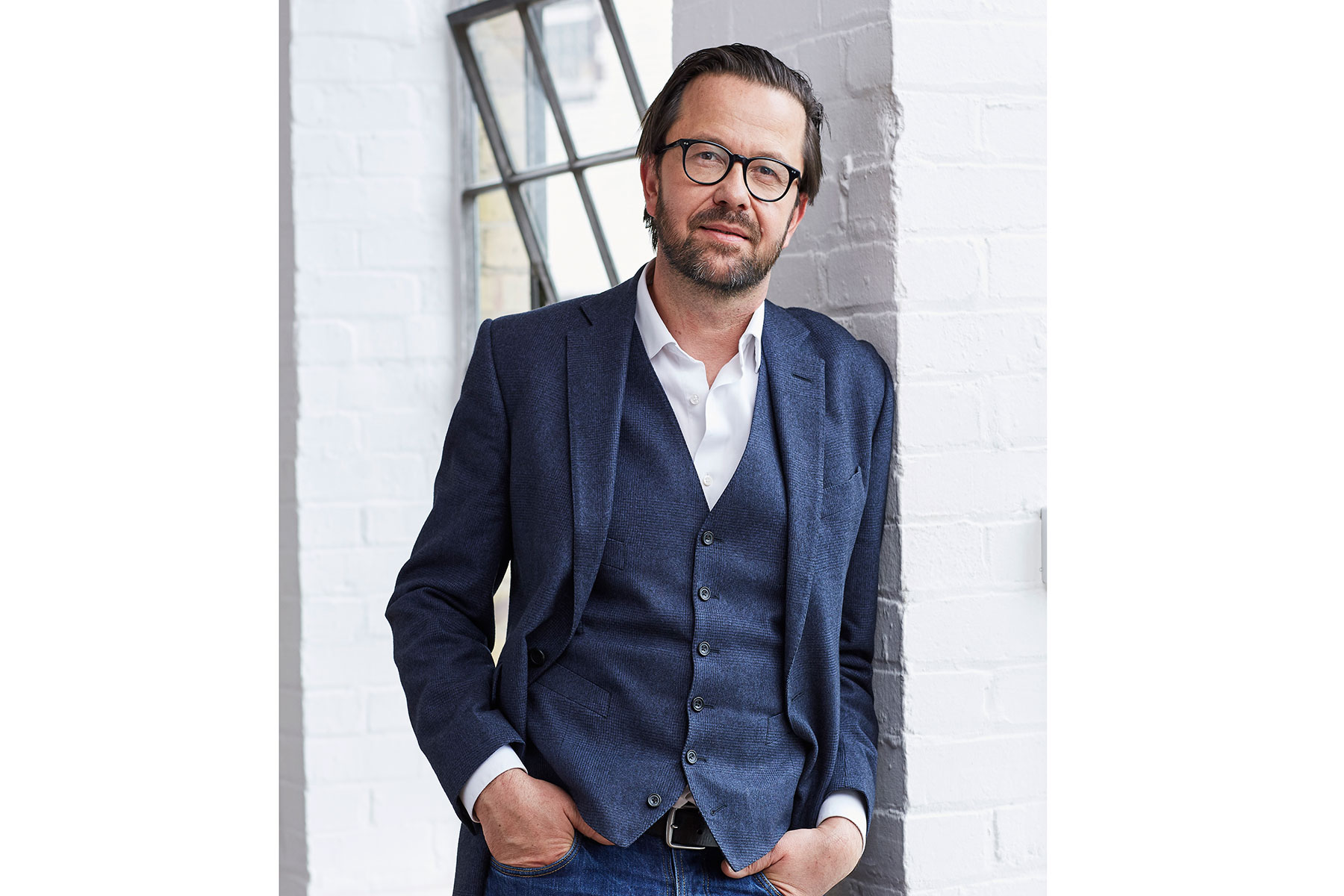
When was your green lightbulb moment?
Learning that the fashion industry was the second most polluting industry in the entire world, second only to oil was a real eye-opener. I knew that it was ambitious, but that I could drive change in the sector by disrupting the fast fashion model and pivoting towards a circular business model. I realised that we need to champion slow fashion while caring for people and the planet, and campaigning for change.
What green business practices are you most proud of?
We recently became a Certified B Corp with an outstanding rating and, in fact, the highest score in the UK and the second highest in Europe for the fashion sector. This B Corp verification process is second to none, you can’t greenwash it, you can’t cheat it, every part of the business is analysed so you have to earn it. Certified B Corps are businesses that meet the highest standards of verified social and environmental performance, public transparency, and legal accountability to balance profit and purpose. I’m incredibly proud of this achievement. We encourage other businesses to follow and customers to recognise and support B Corps who are driving positive change.
Some of the ways we achieved this were through our implementation of a circular model. We don’t overproduce or send anything to landfill or to be incinerated. We achieved our goal of becoming carbon negative across our entire supply chain in 2020 which is inspiring not only to me, but my entire team. Ninety two per cent of the fibres and fabrics that we now use are responsibly sourced. We don’t like to use the word ‘sustainable’ as this gives the message that the fibre process has no impact on the environment. We source everything with as low of an impact as possible, hence we say our fibres are ‘responsible’. If anyone could call their collection sustainable, it would be us. Our collections are Designed for Good.
What makes you feel positive about a sustainable future?
We have pivoted to a business for good by incorporating circular and sharing initiatives and being totally transparent about where our garments are made, who made them, and what we are doing to change the world. We are active members of The Fashion Pact, UN Fashion Industry Charter for Climate Action, Science Based Targets Network and many more. I am seeing real change happening and the industry is coming together collaboratively to address the impacts we’re making. This gives me hope that real change is coming and that we can do this.
There is so much noise and greenwashing happening that consumers are led to be confused. We provide as much information as possible on our website and emails, so oddly we find ourselves in the business of education by demystifying and raising awareness with customers about what really matters. We see the consumer’s mindset is changing, and they are now truly engaging with this issue. I am hopeful that this momentum will pick up pace and that customers will take a moment to consider how their purchasing choices impact on social and environmental issues.
And what are the facts that make you fearful?
What makes me fearful is that momentum is not going fast enough. Also, the unethical choices of fast fashion still remain. For example, the recent controversies with Boohoo and their labour practices, sourcing from China, specifically in Xinjiang with the child labour and modern slavery issues, and using so many polluting fibres such as conventional cotton and synthetic fibres which pollute our biosphere. The consumer too needs to make ethical choices, as buying a new t-shirt or even a dress for £1 is knowingly unethical. The fact it is so cheap and profitable still worries me that this a battle of David and Goliath, but we all know how that one ends!
Who is your own green hero?
Without a doubt, my amazing wife, Baukjen and my team who drive remarkable change from within and really make a difference. Next on my list are David Attenborough and Greta Thunberg. I truly believe if more people listened to these two people aimed at completely different generations, we could achieve more at a much faster pace. As previously mentioned, these issues all surround awareness and how to educate the world.
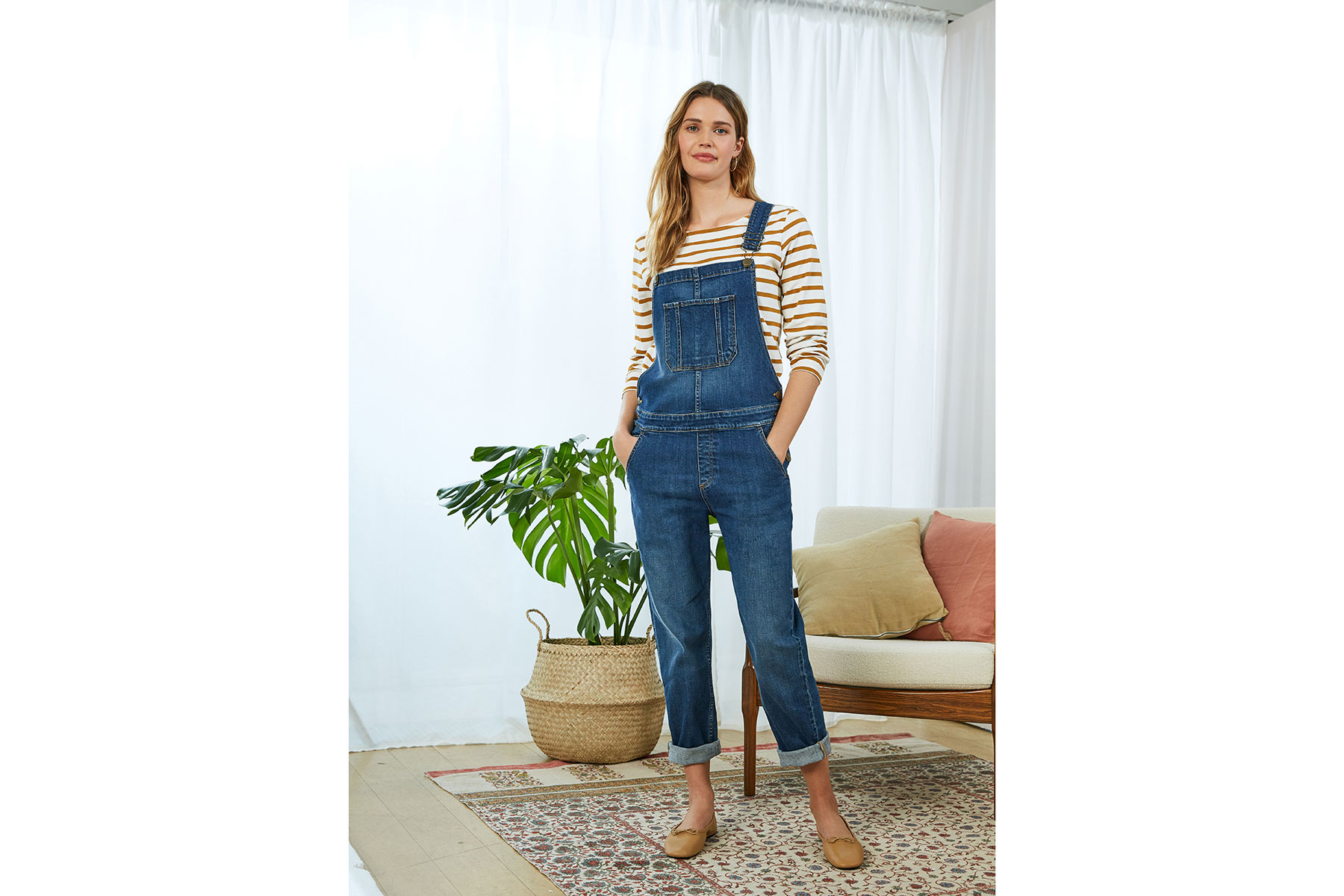
Your favourite product – and tell us why we can feel good about buying it?
Not a product per se as I unfortunately do not wear our womenswear, but I am proud of our efforts to encourage sharing. Fashion like our collection should always be about quality and should be made to last. We offer Pre-Loved and Rental services for our collections. For our maternity collection, Isabella Oliver we are also about to launch our Subscription service. These services allow customers to rent pieces from our collections and encourages customers to go greener. We are also able to prolong the lifecycle of garments this way, contributing to the circular textile economy.
Can producing anything new really be called sustainable?
Absolutely not, and this is our mantra. We say we are responsible, not sustainable, as to be truly sustainable, you must do nothing or simply restore the earth. This means that we minimise what we take and give back more than we took. We invest in initiatives focusing on clean energy, afforestation, and clean drinking water, but production consumes water, energy, and releases carbon no matter what materials you use. We still need to take into account the bigger picture of restoring and offsetting with quality gold standard projects. No greenwashing!
Where do your source your materials?
Fashion supply chains are often very complex and not transparent. A cotton dress made in Italy can still be made from cotton that originated from Xinjiang. Most companies cannot even see who their cotton mills are owned by or who finishes and dyes their garments. However, our production takes place in Portugal and we have visibility on our supply chain and where our cotton came from. By sourcing locally, we can reduce our carbon footprint and eliminate problems of social forced labour in the supply chain by having the greatest visibility and transparency. All our supply chain is paid a living wage and must adhere to our code of conduct.
Name three other of your favourite brands who are doing the right thing and why you like them?
There are so many courageous and innovative brands out there, changing the world that it is hard to pick. If I had to call out three more well-known brands over different sectors, I would pick the below:
- Patagonia – I had to pick one fashion brand, and these guys are really all about activism. I think customer education is key which is something they do so well. They also sell great sportswear which is a definite bonus!
- The Body Shop – a fellow certified B Corp. They use recycled materials wherever possible, do not participate in any animal testing or cruelty, and constantly try to educate the customer on how to correctly dispose of their empties.
- Natoora – they have lifted the importance of the provenance and quality of food, as well as their versatility by working with the supply chain in true partnerships. This revolutionises our relationship with food. Their mission is to replace a broken, opaque food system with a transparent and sustainable supply chain. They source radically seasonal produce that highlights the true cost of farming, protects the land from soil depletion and favours sustainable, nutritionally dense crops with revolutionary flavour.
Should we be green shaming the brands/companies who are doing nothing to change their ways?
I don’t think green shaming is the right approach. I believe customer and supply chain education is key. It is more constructive to bring them on the journey and share what we learn and how easy it is to make better choices. Once customers learn what to look out for when buying responsibly, they can vote with their wallet and brands and companies will either have to follow or they will be left behind. I am hopeful for a more responsible future.
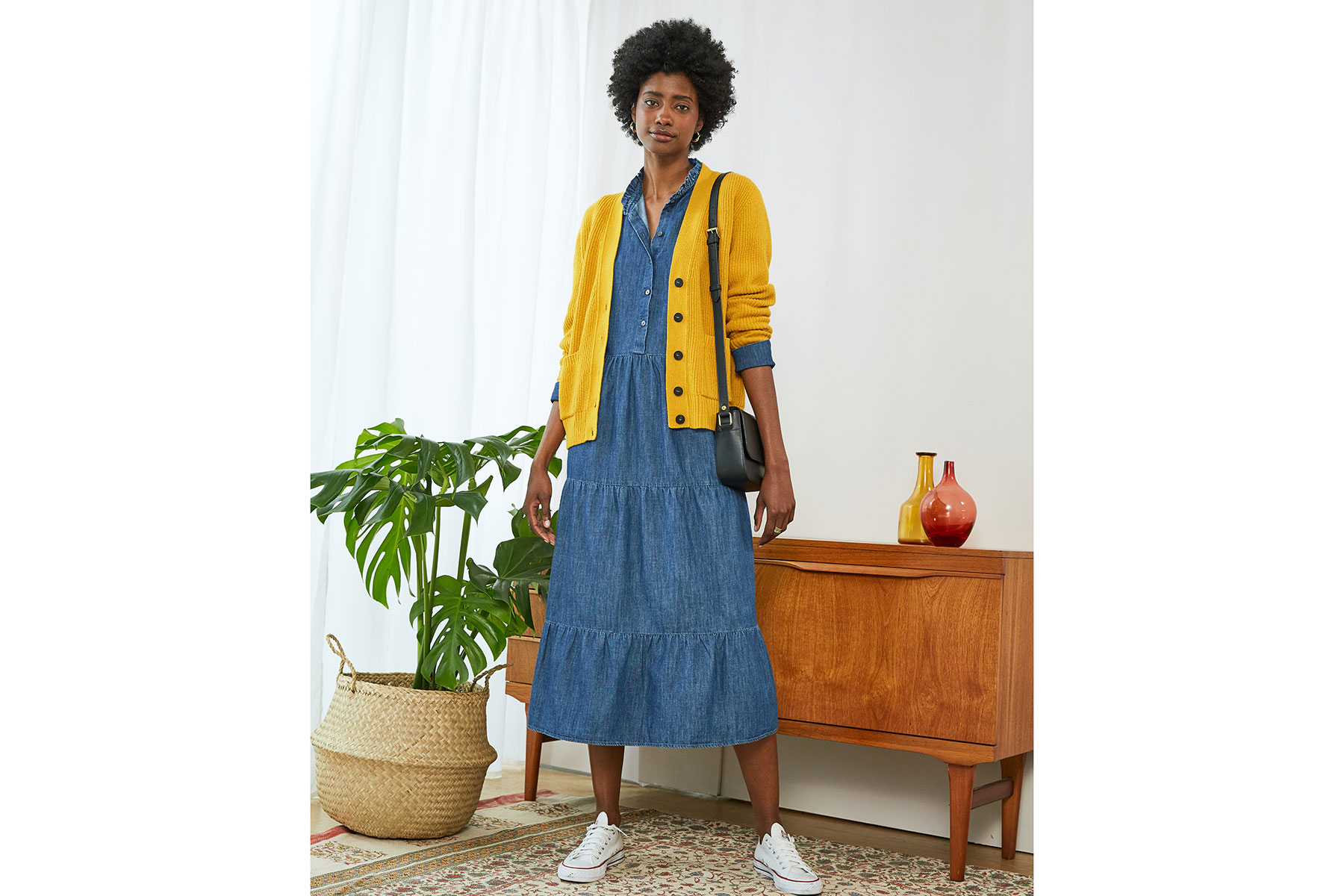
What are the biggest challenges in running a sustainable business?
The key challenge is spreading awareness to consumers. The public unfortunately is confused, not helped by greenwashing, to know what is truly sustainable. The most important thing we can do as a brand is to campaign for change and be leaders in adopting a slower fashion model for which the size of our megaphone matters for the sake of the planet.
Looking internally, sourcing affordable innovative and responsible materials is also challenging. They are available but expensive making access to them difficult for fashion brands. For example, creating circular fabrics requires mills and factories to be equipped with the right technology and many are not there yet. It is fantastic however, to see new materials come onto the market on a regular basis.
What advice can you give to other businesses who are wanting to do better?
My first suggestion would be for companies to embark on their B Corp journey. This puts the key considerations surrounding environmental and social aspects at the heart of what the brand stands for. This gives a great basis to work from for constant positive change, for good.
At House of Baukjen we focused on the key areas of impact as a starting point. We then began engaging with internal and external stakeholders who have the same passion that we have. For us, that was everything from creating responsible cellulose branded hangers to working with Canopy to ensure we are sourcing our wood-based fibres and packaging from sustainably managed forests. Finally, setting science-based targets to review regularly helps to track your progress and ensures transparency. Trust is key!
Will you sign up to going carbon neutral (or even negative) by 2050?
Absolutely, we became completely Carbon Negative across our entire supply chain in 2020. What really matters in this process is avoiding, reducing, and innovating to reduce your carbon consumption. For example, we reduced our carbon output by 40 per cent alone in the last quarter. Offsetting the remaining emissions is the final step. We offset our carbon emissions through Gold Standard Certified and Verified offsets. These are projects that make a long term and distinguishable difference. An offset is not an offset if it doesn’t make a material difference by being Gold Standard. This is an area where companies can do the wrong thing by buying cheap offsets that do not do the job properly such as replacing trees that have already been cut down. If an offset is not Gold Standard, it will be poor quality and a waste.
The steps we are taking are very scientific. We use external Higg and Fabric Tools to analyse our carbon, water, energy, and chemical output in our entire supply chain, and constantly look into innovative ways to reduce these impacts. Through collaboration with The Fashion Pact, or the UN, or B Corp, we are aware of the importance of the Paris Agreement and were in fact the first fashion brand to be invited to the Terra Carta. An initiative launched by HRH The Prince of Wales to encourage the world’s CEOs to commit to speed up net-zero commitments ahead of the Paris Agreement.
Three things we should all, as individuals, be doing to help in the climate change fight?
- Educating yourself is key. Try to learn about the nuances of what really matters and how you can be better without too much compromise, then spread the word! There is nothing more trustworthy than a friend’s recommendation or advice and we’re discovering new eco-friendly products or services all the time.
- Try and reduce your impact through simple daily actions: only buy quality, ask where things have come from and how they have been produced, wash your clothes less, avoid single-use plastic, recycle!
- Support businesses that are truly making a difference such as Certified B Corps.
Find out more about Bauken by reading their impact report published each quarter. each quarter, as well as their People and Planet page which details the workforce, fabrics, policies and even more.
MORE GREEN HEROES:
Mahira Kalim / Malak Ben Hmeda

